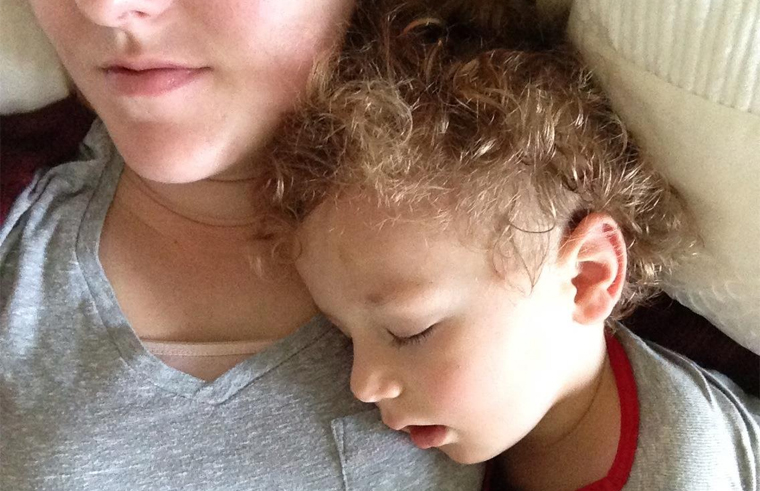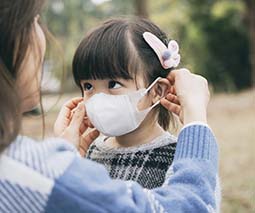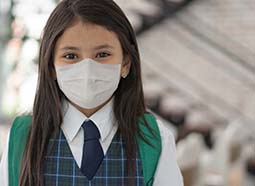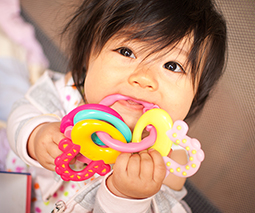Mum’s important warning: “Children should not breathe through their mouths”

Melody Yazdani shared her family’s story on Facebook in the hope that it might help others.
A daily struggle
Melody and her family had been struggling with her son’s behaviour for a number of years. He was very emotional, short-tempered, prone to tantrums and a real handful most of the time.
At school, it was the same, and now eight-year-old Kian was constantly getting in trouble, putting his hands on other children and generally just unable to concentrate and settle.
Melody was relentless when it came to seeking support and trying to help her son. Everyone’s days were being impacted by his behaviour, and on top of that, he seemed generally unwell.
ADHD?
Kian starts seeing a therapist who was recommended by his paediatrician. The therapist starts working with him, and eventually recommends ADHD testing. He sees a pulmonologist and an allergist in close succession. The interventions and meds begin to pile up.
“Each doctor is recommending more and more medications,” Melody writes. “Two inhalers for the cough, an antibiotic (4 different rounds) for the postnasal drip, a steroid, and it goes on and on. The therapist is dancing around ADHD, pushing us in that direction.”
But it turned out a trip to the dentist would become a turning point, prompting not only Kian’s recovery but this warning to other families.
“At a cleaning, Kian’s dentist makes an offhand comment about his teeth – they were ground almost halfway down, he’s grinding his teeth at night,” Melody explains.
Parents, prepare yourself for some all caps yelling, because this is going to change some lives. All parents. If you…
Posted by Melody Yazdani Zhang on Wednesday, 24 October 2018
A cascade of health consequences
This observation sparked a huge turnaround.
“Lightening struck, right at the perfect time,” Melody wrote on Facebook. “I stumbled upon an article that changed our life. The article, I’ve included at the bottom of the post, was about the connection between ADHD, sleep-disordered breathing, and mouth breathing. Every word in this article sounded like Kian.”
Further research – and specialist care – revealed that Kian’s mouth breathing was linked to a sleep disorder, one that impacted his behaviour, overall health and development in ways you might not expect.
“Mouth breathing can cause disrupted sleep and reduce oxygen levels,” Melody writes. “But it can also cause other changes in a child, impacting “correct development of the upper jaw – narrow and high palette, a recessed lower jaw (overjet and overbite can form), speech problems (r/l mispronunciation) and misaligned teeth. These developments narrow the airways and worsen the problem. Medical professionals have a term for the resulting ‘long’ face caused by these changes – ‘Adenoid face.'”
More to the story
She warned that the following symptoms can indicate that there is something more at play:
- falls asleep immediately after their head hits the pillow
- snores
- grinds their teeth
- wakes up in the night
- has night time accidents or daytime accidents
- has impulse control issues
- is hard to understand when speaking
- has under eye circles
- has crooked teeth or a misaligned bite
- wakes up insanely early
- is irritable during the day
- has a bad appetite
Melody explained that the link between sleep disorders and ADHD is a very strong one, and that many ‘ADHD’ children who are treated for a sleep disorder no longer exhibit those ADHD symptoms.
In other words, they have been misdiagnosed with ADHD when they had a sleep disorder all along.
“After a visit to an ENT and a sleep study, he was diagnosed with sleep apnoea and sinusitis,” Melody explains. “He got exactly 0 minutes of REM sleep during the first study, and oxygen saturation in the low 80%, and his sinuses were 90% blocked.”
Sleep apnoea
Once her son had his adenoids and tonsils taken out, the improvement was instant and incredible. The headaches he’d been suffering – unbeknownst to his parents – disappeared, he could breathe properly and he was getting a much better night’s sleep.
“No more angry tantrums, no more fixation on little OCD things, it’s been an enormous change,” Melody writes. “We haven’t even finished the second step – fixing his jaw and tongue issues that developed during the course of undiagnosed sleep apnoea. Our followup sleep study? 360 minutes of REM sleep, and oxygen saturation above the minimum threshold. No behaviour reports in school. His appetite has exploded, he’s no longer a picky eater, and he had a huge growth spurt 2 weeks after the surgery.”
In her post on Facebook Melody shared a long list of studies that illustrate the connections between sleep disorders, development and behaviour in little ones, again urging parents to dig a little deeper if any of her experience tweaks the spidey senses of the parents.
“If any of this is raising red flags in your mind, if this sounds like your child, if your child has been diagnosed with ADHD, please see an ENT and get a sleep study. It may just change your life.”









